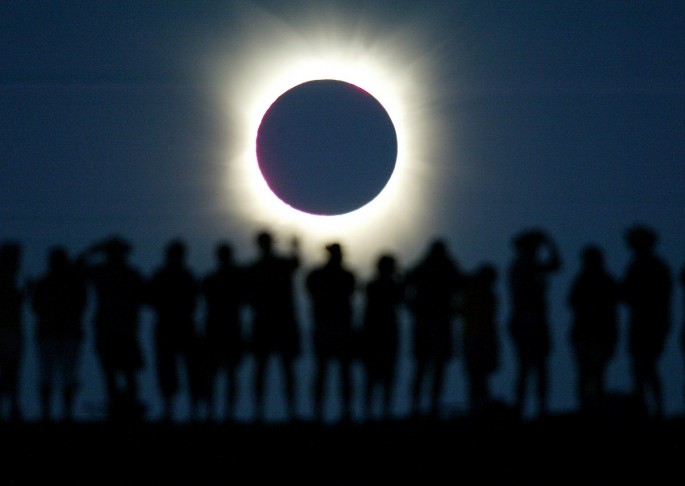April sky will host 2015's first Total Lunar Eclipse on Saturday, April 4 when the Earth will pass between the sun and the moon. It also happens to be the third lunar eclipse of the tetrad-the series of four blood moon. Read on to find out where to watch the event live online via streaming.
What makes this Total Lunar Eclipse special is its duration. The occultation will only last for four minutes 43 seconds, according to NASA. This makes it the shortest and fastest Lunar Eclipse of 21st century. A video on NASA's YouTube channel provides the preview of the upcoming Total Lunar Eclipse. Scroll down to view it.
According to Earthsky.org, the partial umbral eclipse begins at 10:16 UT and ends at 13:45 UT. As for the total eclipse, it starts at 11:58 UT reaches its greatest phase at 12:00 UT and ends at 12:03 UT. The celestial event will reportedly be visible from western North America, eastern Asia, the Pacific Australia and New Zealand. The website clarifies, that for the American time zones, the occultation takes place before the sunrise and for Eastern hemisphere eclipse takes place after the sun goes down on April 4. But those in Africa and Europe will not be able to witness the eclipse.
For those whose view is interrupted by cloudy skies, they can watch the event Total Lunar Eclipse online via live stream or webcast. Slooh, the community observatory, will provide the live telecast of the Lunar Eclipse beginning at 6:00 am ET (3:00 am PT) at live.slooh.com. Another webcast available online during the event will be hosted by The Virtual Telescope Project 2.0 beginning at 10:00 UT.



























